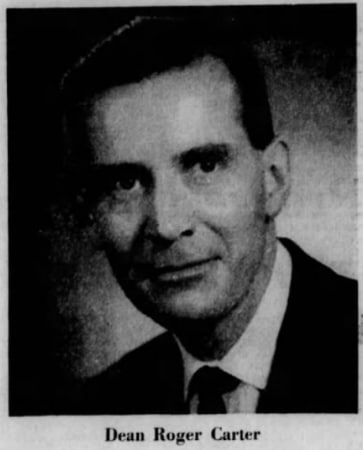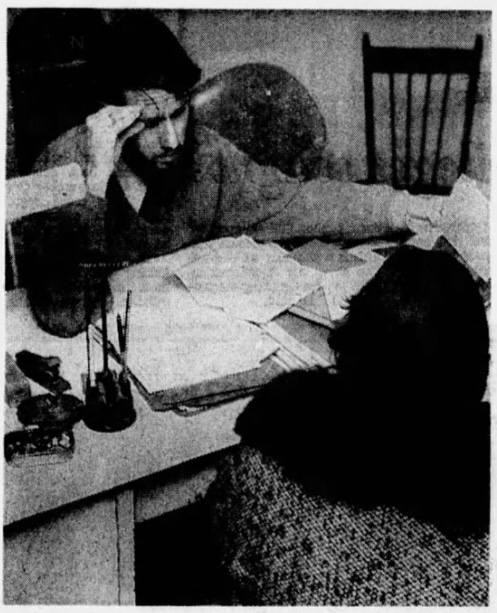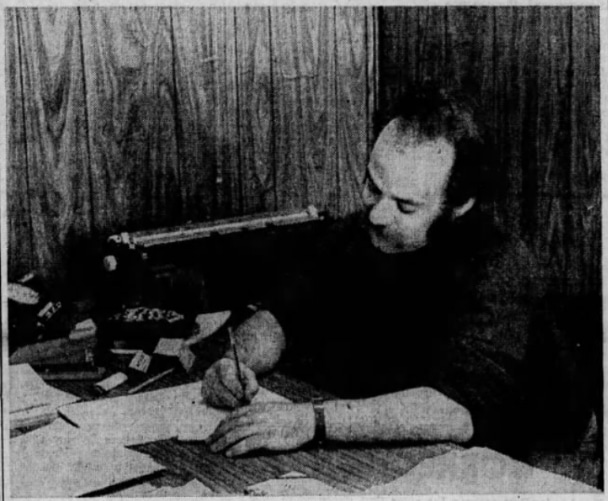Pre-Saskatchewan Legal Aid Commission
The Roots of Legal Aid Services in Saskatchewan
Prior to 1967, legal aid services in Saskatchewan were provided on a voluntary basis, except for the defence of serious criminal matters.
All judges of the Court of Appeal, Court of Queen’s Bench and District Court had power granted by the Attorney General to appoint legal aid counsel for defendants with criminal charges. The Attorney General arranged payment for legal services to lawyers who handled these serious criminal matters.
Lobbying Amplifies for Improved Legal Aid System
There were several components of the current legal aid practices that were criticized:
- An accused person was arrested, charged and made their first appearance in court without a lawyer.
- It sometimes took weeks for an accused person to see legal aid counsel.
- There was a lot of pressure on Judges to determine indigency.
- The fees paid to the lawyers were low, and no costs for investigation or witness fees were covered. As a result, most legal aid cases were seen by articling students with lower levels of experience and knowledge.
The John Howard Society led an effort to lobby the provincial government for an improved legal aid system. In 1965, the Law Society of Saskatchewan, Saskatoon Bar Association and John Howard Society submitted a brief to the Attorney General’s office that recommended establishing a tariff of fees paid by the government in an attempt to lure experienced lawyers to take on legal aid cases.
Saskatchewan Legal Aid Plan (Criminal Matters) Passed in Spring Session of Legislature
The Saskatchewan Legal Aid Plan (Criminal Matters) was passed in the Legislature during the spring session (February - April). This allowed for the Law Society of Saskatchewan to administer local legal aid committees with fees for legal services to be paid to the lawyers by the Attorney General. The plan did not cover civil or family legal aid, and was only applicable to indigent individuals charged with offences under The Criminal Code and The Narcotics Control Act.
To be eligible for legal aid services, a single person had to make less than $2,000 per year and a married person less than $2,500 per year.
Lawyers who wanted to serve as legal aid counsellors could sign up with their local legal aid committee. The proposed legal aid plan outlined the fee schedule for lawyers. Senior lawyers with at least 10 years of practice were to be paid according to the Court.
- Superior court cases involving serious crimes (such as murder or rape) – $100 per half day
- Queen’s Bench Court, including appeals – $30 if the defendant pleads guilty, plus $60 fee per half-day
- District Court or Criminal Court – $20 if a defendant pleads guilty, plus $50 per half day
- Magistrates’ Court – $20 if the accused pleads guilty, and fees of $40 per half day.
- Preliminary hearings – $50 fees for the first day and $35 each following day, and $15 for attending bail application hearing
Junior lawyers were to receive approximately three quarters of this pay structure.
First Legal Aid Clinic in the Province Opens in Regina
The first legal aid clinic in Saskatchewan opened its doors in Regina. To obtain legal aid services, a person who was arrested could request an application from the police or RCMP officers. The legal aid committee secretary gathered the applications on a daily basis and contacted the volunteer lawyer on interviewing duty for that day. The lawyer then interviewed the applicant, and if the lawyer decided he or she was entitled to legal aid services, the interviewer would arrange for a volunteer lawyer to manage the file.
"One of the fundamental traditions of the legal professions has always been that no one need be without counsel for lack of funds. That tradition is further reinforced by the launching of the Saskatchewan legal aid plan, brought about through the voluntary action of the profession in cooperation with the provincial government. The law society and the local bar associations are to be highly commended for the way in which they have helped to bring into being this important milestone." – Attorney General Heald
Legal Aid Plans Operating in Several Saskatchewan Communities
By the end of October 1967, legal aid plans were operational in the following communities:
- Melville
- Yorkton
- North Battleford
- Moose Jaw
- Swift Current
- Estevan
- Prince Albert
- Regina
- Saskatoon
- Weyburn
Legal Aid Services Available in Rural Communities, Too
Legal aid services were no longer limited to persons in cities but available in all parts of the province. Judges determined whether people charged with criminal offences require legal aid and if they are eligible (indigent).
"The extension of the legal aid program on an official basis represents this government’s recognition that every person has certain fundamental rights that must be protected and that lack of economic means should not create a denial of those rights." – Attorney General Heald
Law Students Open Legal Assistance Clinic
A group of volunteer lawyers, College of Law faculty members, and law students opened the Saskatoon Legal Assistance Clinic at the Friendship Inn to fill the gap in legal services provided in the community.
There were four goals of the Saskatoon Legal Assistance Clinic:
- To provide free legal counsel and assistance to indigent community members in broad areas, such as consumer credit law, landlord-tenant law and minor offences.
- To provide counselling in laws affecting marriage and divorce.
- Improve legal aid education by having law students apply knowledge and skills in community settings.
- Provide help for young people and inform them of their legal rights.
This experimental civil legal aid project was modelled after a Los Angeles scheme operating in that city’s Watts’ district.
Saskatoon Legal Assistance Clinic Opens Second Location
The Saskatoon Legal Assistance Clinic opened a second office at the Family Services Bureau. This office provides counselling in laws affecting marriage and divorce. As long as a client qualified as needy, the clinic could do a divorce for free.
Legal Aid Appoints Part-Time Interviewer
Hilmer Nordstrom was appointed part-time interviewer for the provincial legal aid department. His job duties included conducting interviews and investigating legal aid applicants.
For more than a year leading up to his appointment, local interviewers had been so overworked by the number of applicants that the interview process wasn’t as thorough as it could have been, and there were concerns people were dishonest on their affidavits in their applications. Some volunteer interviewers were contemplating a refusal of service.
Regina Law Student Provides Legal Advice from Community Clinic
A clinic similar to Saskatoon’s Legal Assistance Clinic opened in Regina. Hugh MacLaren, a 26-year-old second-year law student was hired through a provincial Student Temporary Employment Program and served as the clinic’s sole adviser. He could give advice on family and financial matters, but not attend court.
The clinic’s work is overseen by Professor Norman of the University of Saskatchewan, who anticipated the provincial government to notice the effectiveness of the clinic model and incorporate it into the provincial legal aid plan.
Saskatoon Legal Assistance Clinic Receives $30,000 Grant and Opens Third Storefront Location
The Saskatoon Legal Assistance Clinic was one of three clinics across the country to receive a $30,000 grant from the federal government’s Department of National Health and Welfare. This financed the clinic for one year of operations in exchange for information gathering regarding the legal problems of low-income and disadvantaged groups. A third location opened on 20th Street, led by Linton Smith. Smith was the first legal aid lawyer in the province.
The grant allowed for the hiring of one full-time staff lawyer and one paralegal to compliment the team of part-time volunteers. The clinic also hoped to expand its public education initiatives in the community.
Attorney General Appoints the Carter Committee to Review Legal Services in Saskatchewan
In response to the growing dissatisfaction with the legal aid program, Attorney General Roy Romanow appointed a committee chaired by Roger Carter, University of Saskatchewan Dean of Law, to review the system and determine the needs of legal aid for the 1970s.


Regina Leader Post, October 23, 1972
Regina Leader Post, October 23, 1972
Canada’s First Rural Legal Assistance Clinic Established in Duck Lake
The Saskatoon Legal Assistance Clinic collaborated with law students from the University of Saskatchewan to establish the Valley Legal Assistance Clinic in Duck Lake. This clinic, headed by legal director Don Purich, was the first in Canada to provide legal aid services in a rural area.


Donald Purich assists a legal aid client. Saskatoon Star Phoenix, February 2, 1973
Donald Purich assists a legal aid client. Saskatoon Star Phoenix, February 2, 1973
Carter Committee Presents Report on Legal Aid Services to Attorney General
After almost a year of review and holding hearings throughout the province to hear from different community groups, Attorney General Roy Romanow received the final report from the Carter Committee.
Recommendations were:
- On an immediate priority basis, a legal aid facility should be developed in Northern Saskatchewan to meet the extreme need exhibited there. As of the summer of 1972, there were no practicing lawyers north of Prince Albert or Meadow Lake. There were lengthy problems with travelling to remote areas, as well as language barriers with many First Nation communities.
- The legal aid scheme must be independent from the government. A provincial central agency was recommended for general administrative control, then each area clinic would have an advisory board.
- Legal aid should be regarded as a matter of right – not a charity.
- A legal aid scheme should be capable of acting, on proper occasions, as a vehicle for social change.
- A legal aid system must be comprehensive. In other words, the scope of services available must be as broad as possible. Private bar lawyers were to be involved in criminal matters, so that clients accused of an offense under any federal law had the choice of a clinic or private lawyer. All civil matters were to be covered by clinic lawyers.
- A legal aid plan must provide good professional services.
- Provision should be made for the use of paraprofessional personnel.
First Director Appointed for La Ronge’s “Flying Legal Aid” Clinic
Lloyd Deshaye was hired as the first Director of Northern Legal Services in La Ronge – otherwise known as the first “flying legal aid” clinic. Until this time, there were no lawyers available in the north, and only people with financial means could hire a lawyer from Prince Albert. Occasionally, the Saskatoon Legal Assistance Clinic would send law students to provide some legal services.
Every two weeks, court was held in Uranium City, Stoney Rapids, Sandy Bay, Pelican Narrows, Creighton, Ile a la Crosse, Buffalo Narrows, La Loche, Cumberland House and La Ronge. About 95% of clients were Indigenous, and interpreters were needed often due to language barriers. The legal aid lawyers played a key role in explaining to clients what the charges were and mean. They contested approximately 15-20% of cases, and of those, 65% were acquittals.
The clinic had a goal of using Indigenous paraprofessionals to provide some legal work, legal advice and information. Spreading legal advice and information was something the clinic believed would help improve some social conditions in the north, where the crime rate was four-times that of the rest of the province.
"There may be a lot of native people in the courts but I don’t think there are many native criminals." – Lloyd Deshaye, first director of the “flying legal aid” clinic in La Ronge


Barry Singer of the “flying legal aid clinic” in La Ronge. Regina Leader Post, September 23, 1974
Barry Singer of the “flying legal aid clinic” in La Ronge. Regina Leader Post, September 23, 1974
Regina Community Legal Services Society Opens Clinic
The Regina Community Legal Services Society opened at 1911 South Railway Street. On staff were two full time paraprofessionals and six lawyers on call. The clinic provided free legal advice and assistance to people facing unnecessary hardship or receiving social assistance. Cases not covered included ones involving The Criminal Code, Food and Drug Act, Narcotics Control Act, and juvenile delinquency (these cases were covered by the provincial program).
Bill Howe and Donna Ross were the paralegals. They performed as much of the background work as possible before handing the case over to a lawyer.
"The growth in poor law has become so great that the need for paraprofessionals like ourselves is phenomenal. We’re really a cross between court workers and social workers." – Bill Howe, paralegal
Saskatchewan Community Legal Services Commission Established
Proclamation of The Community Legal Services (Saskatchewan) Act, 1974 occurred and the Saskatchewan Community Legal Services Commission was established. The decentralized legal aid program was administered by the provincial commission, a provincial director, area directors and community boards.
The Commission was made up of:
- three members appointed by community boards:
- Elton Davidge (Yorkton) (managing director of the Society for the Involvement of Good Neighbours and chair of the Parkland Legal Assistance Society)
- Raymond Fox (North Battleford) (court worker and chair of the Battlefords and Area Legal Services Society)
- Ted Hayes (Regina) (social worker and chair of the Regina Community Legal Services Society)
- one member chosen by the Law Society of Saskatchewan and appointed by the cabinet:
- Si Halyk (Saskatoon) (lawyer)
- three appointees by the provincial government to represent taxpayers:
- Colvin Peyson (Regina) (psychologist)
- Nick Sherstobitoff (Saskatoon) (lawyer)
- Dave Woolf (Turtleford) (farmer)
- one federal appointee:
- Ken Halvorsen (Regina) (lawyer)
- one provincial director appointed by the Commission:
- Linton Smith (Saskatoon)
Responsibilities of the Commission included:
- dividing province into administrative areas;
- establishing eligibility;
- authorizing boards’ use of law students;
- receiving and distributing funds to area boards;
- setting fee structure for lawyers (with consultation by Law Society) and making payments to the lawyers for services; and
- evaluating the effectiveness of the program.
The provincial director appointed each area director. Each area director administered the funds provided by the Commission and acquired an office for the clinic.
The role of the community boards included:
- contract negotiations for the region;
- executing public education campaigns;
- establishment of a legal appeal committee; and
- advising area directors about legal needs.
The Commission’s headquarters was in Saskatoon. All existing legal aid clinics were part of the provincial scheme, with more throughout the province in early phases of establishment. The plan was estimated to cost between $1.7 and $2 million per year.
"The Community Legal Services Act will lead the way in the field of legal aid, setting an example for other provinces to follow. It will be the aim of the newly appointed commission to ensure all members of Saskatchewan society have equal ability to enforce their rights, that public information programs be initiated to inform citizens of their rights and obligations, and that programs be developed to prevent the creation of legal problems." – Roy Romanow, Attorney General


First logo
First logo